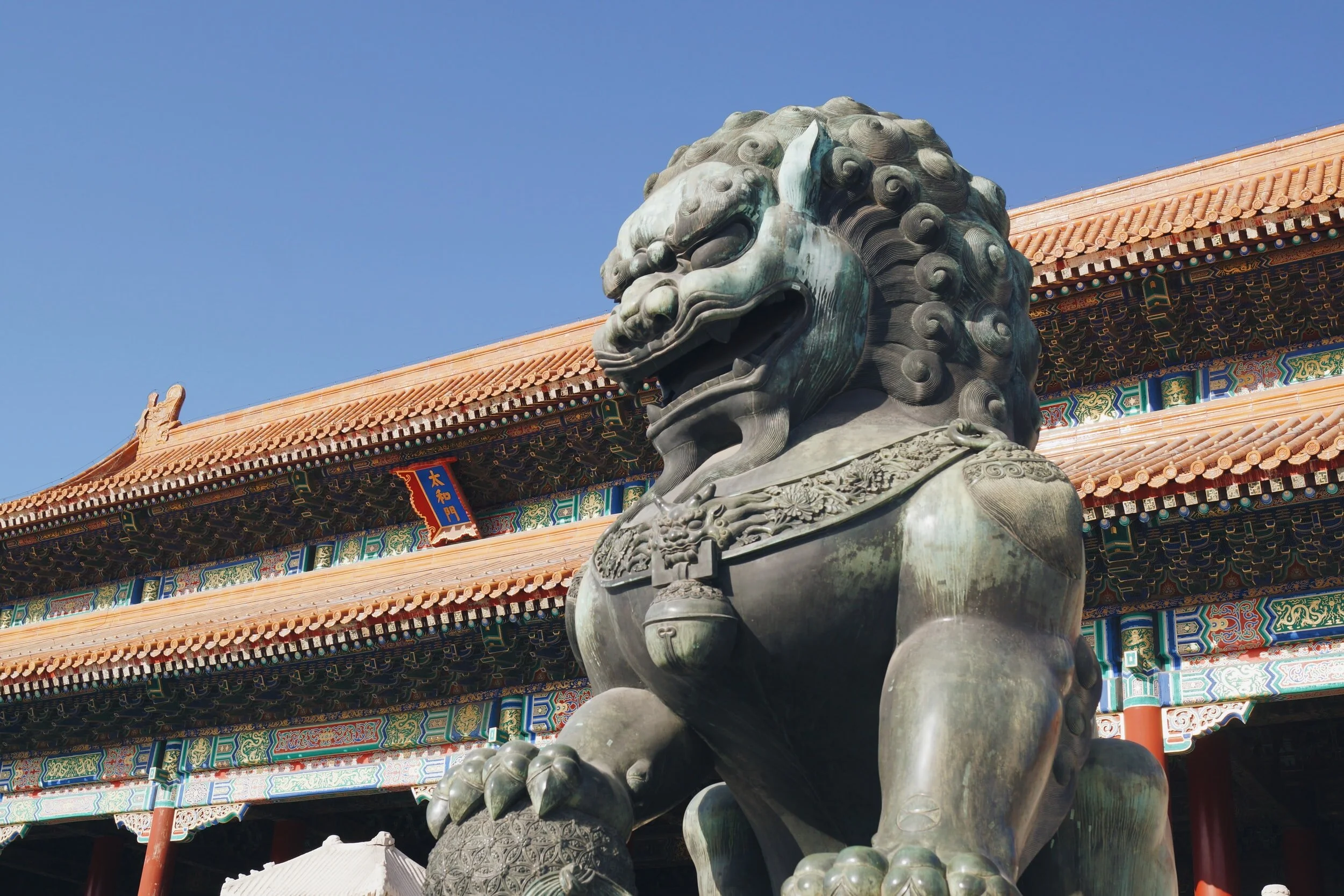A few weeks ago I watched in shock and disbelief with the rest of the world as insurrectionists stormed the Capitol in Washington D.C., sending elected federal officials into hiding. Meanwhile, thousands more protesters rallied outside on the National Mall carrying American flags, campaign signs, and white supremacist symbols to show solidarity with a politician who refused to acknowledge the result of an election. I watched in horror the violence and destruction that were being committed inside the Capitol building—causing six deaths and many more injured.
These images were made more disturbing to me by the use of Christian symbols to support these actions. One rioter broke into the U.S. Senate chamber carrying a Christian flag (a recent creation of the American church), and signs that comingled the names of Jesus and President Trump could be seen throughout the crowd. There are certainly times throughout church history where Christians have rightfully used their political influence to fight for justice and truth–e.g. the abolition of the cross-Atlantic slave trade in the British Empire, the Civil Rights Movement, and the anti-human trafficking work of International Justice Mission today come to mind–and often Christians have had to work alongside politicians within the political structure to accomplish these goals. But it becomes idolatrous when followers of Jesus throw their spiritual allegiance behind specific politicians or nationalistic agendas.
It reminded me of the Taiping Rebellion, which raged in China from 1850-1864 led by a man named Hong Xiuquan. Though this bloody war is a much more extreme example than the insurrection of a couple weeks ago, Hong Xiuquan was a professing Christian and was seeking to overturn the Qin Dynasty and establish a Heavenly Kingdom in China. Despite the fact the Hong declared himself to be a brother of Jesus and the second Son of God, to many the rebellion had a noble goal and some early military successes. Hong even ascended to the throne for a short period, but the rebellion eventually imploded in a syncretism of Christianity, politics, and nationalism.
I am not in position to judge the faith of individuals who carried religious symbols during the riot, although I do pray that they will repent of their violent acts. I am more puzzled by what motivated them to engage in violent political actions in the name of Jesus. I couldn’t help but notice the irony behind it all: lawless people storming the U.S. Capitol, one of the world’s most powerful symbols of law and strength.
The destructive hope the rioters placed in one man brought to mind Psalm 146:3, which speaks of the foolishness of placing our trust in princes and earthly power. Of course, simple disillusionment with earthly princes isn’t the answer either. There are many people around the world who are cynical about their national politics and live in hopeless nihilism, and hopeless nihilism is the last thing the Bible teaches. The only effective remedy to political idolatry is to “praise the Lord.” Yet, the temptation to trust in princes is strong, and for me, forsaking that idol has been a long and difficult road. As I reflect on my own growth as a follower of Jesus and my reaction to the events on January 6, I think of two experiences in my life where the Lord opened my eyes to a better hope than princes and nations: one personal and one from working with Chinese pastors.
Never miss a story
My Trust Was In Princes
The first experience happened in 2009 while I was a senior in college. It had been ten years since I immigrated from China, four years since I became a U.S. citizen. I was majoring in government and American Studies at Georgetown University. I had just spent the previous summer interning on Capitol Hill and was taking a class with a former secretary of state. My trust was very much placed in princes.
Even though I had been a Christian for almost six years at that point, I was one of the most unhappy people on campus because I had a shallow view of grace. I knew that Jesus’ blood had covered over all my follies and sinful actions, but I had been a pretty good person. There was not much for Jesus to cover. Moreover, I had been a good practitioner of the Christian faith for many years: I attended church faithfully and read my Bible daily. God should be rewarding me for my efforts. Only God didn’t do that; instead he made me miserable. I was not getting what I wanted out of life, and my bitterness at God even began to drive away some of my closest friends. There was obviously something wrong with what I believed, but I had no idea what I was missing until my friends introduced me to Reformed theology, and I began to grasp that Jesus’ blood had not only covered over my sins, it had covered over me! I was sinful in my entire being. Even my “righteous” deeds were done with sinful intentions, wretched man that I am!
Seeing the depth of my corruption also opened my eyes to finally realize the depth of God’s grace. Jesus didn’t die to give me a second chance to do better, Jesus died to give me a new nature. And not just me, my redemption is only a small speck in God’s work to redeem and restore the entire creation. This realization opened my heart to a whole new horizon of hope and a whole new type of treasure. What and whom can compare to this amazing grace?
Letting Go of the American Dream
The second experience happened in 2018-2019, when I started working with a group of Chinese house church pastors. In the beginning of 2018, the Chinese government announced a series of new religious regulations that would intensify the pressure on and persecution of house churches, but very few foresaw the extent and cruelty of these persecutions. By the end of 2018, Wang Yi, a prominent house church pastor in Chengdu, was arrested and later sentenced to nine years in prison. An elder of his church was sentenced to four years. Soon after that incident, many churches around the country were raided, pastors and believers were taken into police custody, congregations were forced out of their places of worship, Christian families were kicked out of their homes and put under surveillance, and more severe persecutions are expected in the years to come. The reason for stamping out these house churches? They are seen as subverting state power.
One would expect the house church pastors to find various ways to flee the country. Just the opposite: they became more resolved and urgent in proclaiming the gospel to their neighbors, condemning social injustices, training young leaders, and planting new churches in their cities.
Two of my friends who were studying theology in the U.S. chose to return to China to plant churches after their graduations in 2019. They could have enjoyed the sweetness of religious freedom, taken a cushy pastoral job in an American church, and lived the American Dream, but they chose to take their young families back to China despite threats of persecution, because “they desired a better country, that is, a heavenly one.” These men were hardly the first; Dietrich Bonhoeffer famously left New York City and returned to Germany in 1939 to be with his church brothers and sisters, a decision that eventually cost him his life. Their goal was not to escape persecution and take shelter in religious freedom; they wanted to build up God’s Kingdom by serving the persecuted church. The loss of freedom was not a hindrance to them because they REALLY believe in the resurrection. They believe that nothing can keep them from the city God is building for them.
A Higher Allegiance
What do these two experiences have to do with the events of January 6? In American society today, some people (from the left) argue that one’s individual Christian faith has no bearing on the private or public choices of others. Other people (from the right) argue that one’s Christian faith obligates him or her to support the Republican party agenda. Both sides misunderstand the nature of the Christian faith. Although our faith is a personal calling and commitment (as reflected in my individual experience), our faith is also a matter of corporate allegiance to a subversive King (as reflected in my experience with Chinese pastors).
We do not only worship a Savior who gave up his life to redeem us from our sins, we also honor a risen King who is building a kingdom that cannot be shaken, and the scaffold of that kingdom is the church. Jesus commands our personal and corporate worship and allegiance – they are indivisible. We cannot show personal commitment to our transcendent Savior, while corporately casting our spiritual allegiance behind a political party or even an earthly nation. The Apostle Paul wrote in Galatians 6:14-15, “Far be it from me to boast except in the cross of our Lord Jesus Christ, by which the world has been crucified to me, and I to the world. For neither circumcision counts for anything, nor uncircumcision, but a new creation.” In a letter where Paul goes at length to discuss the futile effort of following the law through circumcision, Paul was also critiquing the cultural and national allegiance that circumcision represents. For Paul, neither loyalty to the Jewish culture nor deference to the Gentile cultures meant anything, for his true identity was in the new creation. Our redemption by Christ our Savior makes us citizens of his Kingdom. But God’s Kingdom is not built through power and force, rather through our sacrifices for our neighbors and our proclamation of Jesus’ good news.
This does not mean that Christians cannot work in politics or partner with politicians for the common good, and there are times when the agenda of different parties and nations align more with biblical values. But political engagement cannot equate political loyalty. Our partnership should not lead us to deploy violence, overlook the sinful actions of earthly leaders, or make the name of Jesus equal or even subservient to that of any earthly nation. Christ has called us to a higher allegiance than that. God’s Kingdom has no need of successful political parties or earthly nations in order to grow and thrive. Our brothers and sisters in China remind us: we have thrived through significantly worse times before, and Christ the King is still on the throne.
































